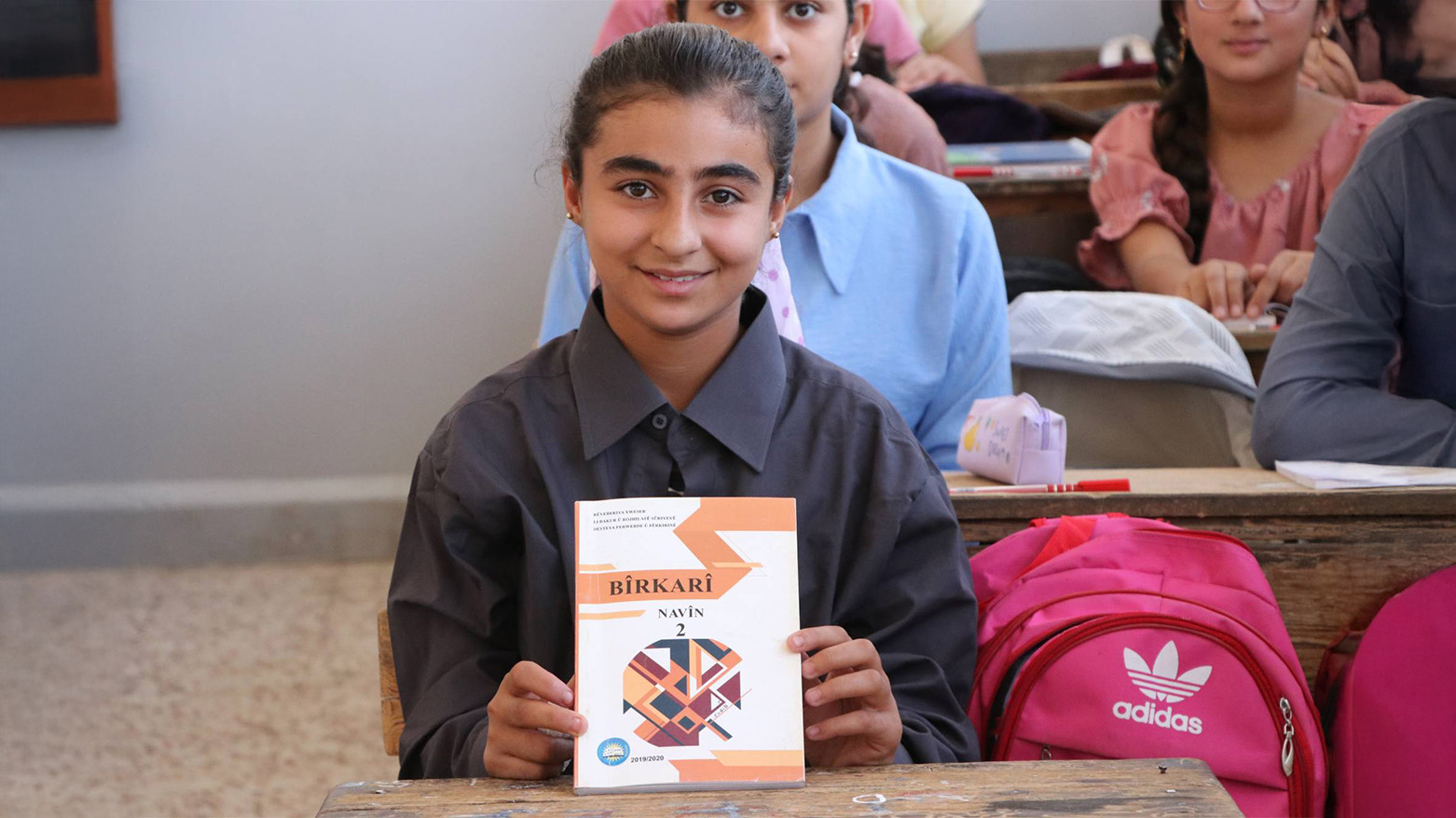Joint Exam Agreement Reached in Western Kurdistan Amid Calls for Broader Educational Recognition
In April, Syrian Education Minister Muhammad Abdul Rahman Turko -who is Kurdish from Afrin City- had hinted at preliminary understandings with the Autonomous Administration regarding the future of education in the Western Kurdistan.

By Ahora Qadi
ERBIL (Kurdistan24) – Syria’s Ministry of Education is preparing to announce a landmark agreement to administer national school examinations in regions controlled by the Syrian Democratic Forces (SDF) in the country’s northeast, a move that marks a rare instance of coordination between Damascus, the Kurdish-led Autonomous Administration, and UNICEF.
According to a senior official in the ministry, four examination centers will be opened in Qamishlo, Hasakah, Raqqa, and rural Deir ez-Zor, allowing over 25,000 students—most of whom studied in government-affiliated schools prior to the fall of the Assad regime—to sit for their basic and secondary education certificate exams without leaving their home regions.
Tri-Party Oversight and Educational Hurdles
The joint supervision will involve Damascus’s Ministry of Education, the education authority of the Autonomous Administration, and the United Nations Children’s Fund (UNICEF), which will serve as a neutral observer. This arrangement is set to benefit thousands of students who continued their studies in schools operating in security enclaves after the collapse of the previous regime in late 2024.
Anticipation is high among parents and students as the exam period begins early next month. Ministry sources noted that students previously registered in Damascus and other government-held areas would be permitted to transfer their records to the newly established local centers, and the registration deadline would be extended in light of the country’s ongoing economic and logistical challenges.
Khalaf al-Matar, head of the Education Authority in the Autonomous Administration, confirmed to local media that his office is awaiting official notification from Damascus to proceed with organizing the exams. He underscored the Administration’s “intensive efforts” to secure students’ rights through dialogue with both UNICEF and the Syrian Ministry of Education.
Recognition Demands and Lingering Disputes
Al-Matar also reiterated the Administration’s long-standing demand for official recognition of its education system, including its curriculum and schools. The Administration has established a full academic structure from primary to university levels, including three universities—Rojava University in Qamishlo, al-Sharq in Raqqa, and Kobani University in Kobani City—which it now seeks to have accredited by Damascus, similar to the status of private universities in Idlib and Aleppo.
Autonomous Administration officials are also calling on the Syrian government to incorporate Kurdish and Syriac language courses into the national curriculum, granting students and parents the freedom to choose their language of instruction.
These educational developments follow a fourth round of talks earlier this month between Syrian Intelligence Chief Hussein al-Salama and SDF Commander Mazloum Abdi at the al-Omar oil field in Deir ez-Zor. That meeting focused on implementing the March agreement signed between President Ahmed al-Sharaa and Abdi, which envisions the integration of SDF forces, local councils, and civil institutions into Syria’s national framework.
In April, Syrian Education Minister Muhammad Abdul Rahman Turko -who is Kurdish from Afrin City- had hinted at preliminary understandings with the Autonomous Administration regarding the future of education in the Western Kurdistan.
A Generation at Risk
UNICEF has repeatedly warned of the catastrophic effects of war on education in Syria, noting that years of conflict have left critical educational infrastructure in ruins and disrupted schooling for millions of children. In a recent report, the agency stressed the urgent need for coordinated action to avoid what it described as a “cross-generational disaster.”
Despite years of political discord and deep-rooted mistrust, the exam agreement—though limited in scope—signals a potential thaw in education policy and could serve as a precedent for broader cooperation between Damascus and the Autonomous Administration in post-war Syria.